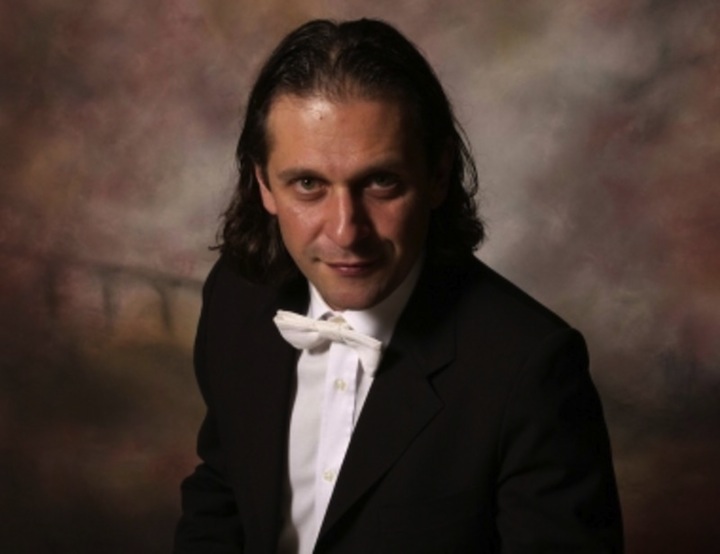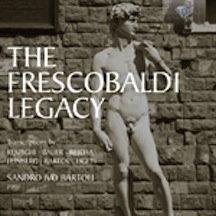
Alexandre Tharaud’s comment to me last month about a concert programme saying as much about its time as it does about the time of its composers keeps yielding insights — such as when listening to a new album of piano transcriptions of the organ music of Girolamo Frescobaldi.
- Classical Music 101: What Does A Conductor Do? - June 17, 2019
- Classical Music 101 | What Does Period Instrument Mean? - May 6, 2019
- CLASSICAL MUSIC 101 | What Does It Mean To Be In Tune? - April 23, 2019
 Italian pianist Sandro Ivo Bartoli, who has made a decent European career out of performing once-popular, now nearly forgotten repertoire from the 20th century, has released a fascinating album he recorded last summer on the Brilliant Classics label.
Italian pianist Sandro Ivo Bartoli, who has made a decent European career out of performing once-popular, now nearly forgotten repertoire from the 20th century, has released a fascinating album he recorded last summer on the Brilliant Classics label.
You can call it the ultimate in esoterica. But it also has broader appeal to anyone who likes baroque counterpoint.
So I’m going to ramble a little bit.
The album is called The Frescobaldi Legacy.
Since we love anniversaries so much, we need to know that this year marks the 430th of the Italian composer’s birth — and the 370th of his death.
We know that J.S. Bach owned a copy of Fiori Musicali, the best-known of Frescobaldi’s 12 volumes of keyboard works. So respected was he that the Italian’s influence on composition style endured for more than a century after his death. Even today, organists love to dip into Frescobaldi’s gorgeously crafted works.
Here is what is probably his greatest hit, a Toccata to be played during the elevation of the host during communion from Fiori Musicali. Maria Grazia Amoruso plays it on a fascinating, case-less portable organ made by the late Italian organist Giorgio Questa in 1966 (he would cart it around on a small Fiat hatchback he called La Girobalda, after Frescobaldi):
Following the great rediscovery and revival of ancient musics in the mid-19th century and the rise of the piano as the all-purpose home entertainment unit of choice, there was a blizzard of transcription-writing for the piano.
Among the venerated composers to get a pianistic makeover was Frescobaldi, initially just before the start of World War I at the hands of pianist and composer Ottorino Respighi (1879-1936 — best known for his Pines and Fountains of Rome for symphony orchestra).
Respighi, who didn’t approach the music with the heavy-handedness of Ferruccio Busoni’s Bach transcriptions, still gives Frescobaldi’s simple musical lines a sort of Romantic amplitude.
This was the era of Richard Strauss and Edward Elgar and of Handel’s Messiah sung by 500 voices. Bigger was best.
Here are Respighi’s transcriptions of the Prelude and Fugue in G minor that open the album — nicely played by Mikako Sugamura:
On his album, Bartoli takes us forward into the 20th century so we can see how the excesses get stripped away, well before the period-performance movement comes around.
There’s a charming Capriccio on the Cuckoo’s Call transcribed by English pianist Harold Bauer in 1918, and two pieces transcribed by Russian pianist Samuil Feinberg (1890-1962) that are all lightness and simplicity.
Bartoli has included a Toccata and Fugue transcribed by Béla Bartók in the mid-1920s that is an intriguing mix of thinking big as well as keeping it simple. And he has recorded music by two very different composers who were inspired by the same Frescobaldi theme to write new pieces of music: Antonin Reicha (1770-1836) and Györgi Ligeti (1923-2006).
Here is Pierre-Laurent Aimard with Ricercare XI from Musica Ricercata:
From lush, we go to pared-down modernism. In a single album of music from the early 17th century, we get a sonic panorama of the 20th century.
Bartoli plays well, with great technique and warm humanity (the Ligeti Ricercare is far less spiky sounding in the Italian pianist’s hands). Although an album like this one seems like a bit of a meander down a particularly obscure path, there is a lot here to enjoy.
You can find out more about the album here.
To help warm up a particularly wintry day in Toronto, here is Bartoli playing Percy Grainger’s endearing transcription of — and variations on — a song by John Dowland — a great blend of ancient and modern:
+++
Here’s an interesting contrast: Bartoli vs Glenn Gould, in Due ricercari sul nome BACH (Two Fugues on the Name BACH) by Alfredo Casella (1883-1947):
+++
This is not at all related, but simply a nice find of how nicely baroque music could be played on the piano in the mid-20th century: Samuil Feinberg in a spirited 1948 recording of J.S. Bach’s Partita No. 1, BWV 825, that still sounds fresh today:
John Terauds
- Classical Music 101: What Does A Conductor Do? - June 17, 2019
- Classical Music 101 | What Does Period Instrument Mean? - May 6, 2019
- CLASSICAL MUSIC 101 | What Does It Mean To Be In Tune? - April 23, 2019



